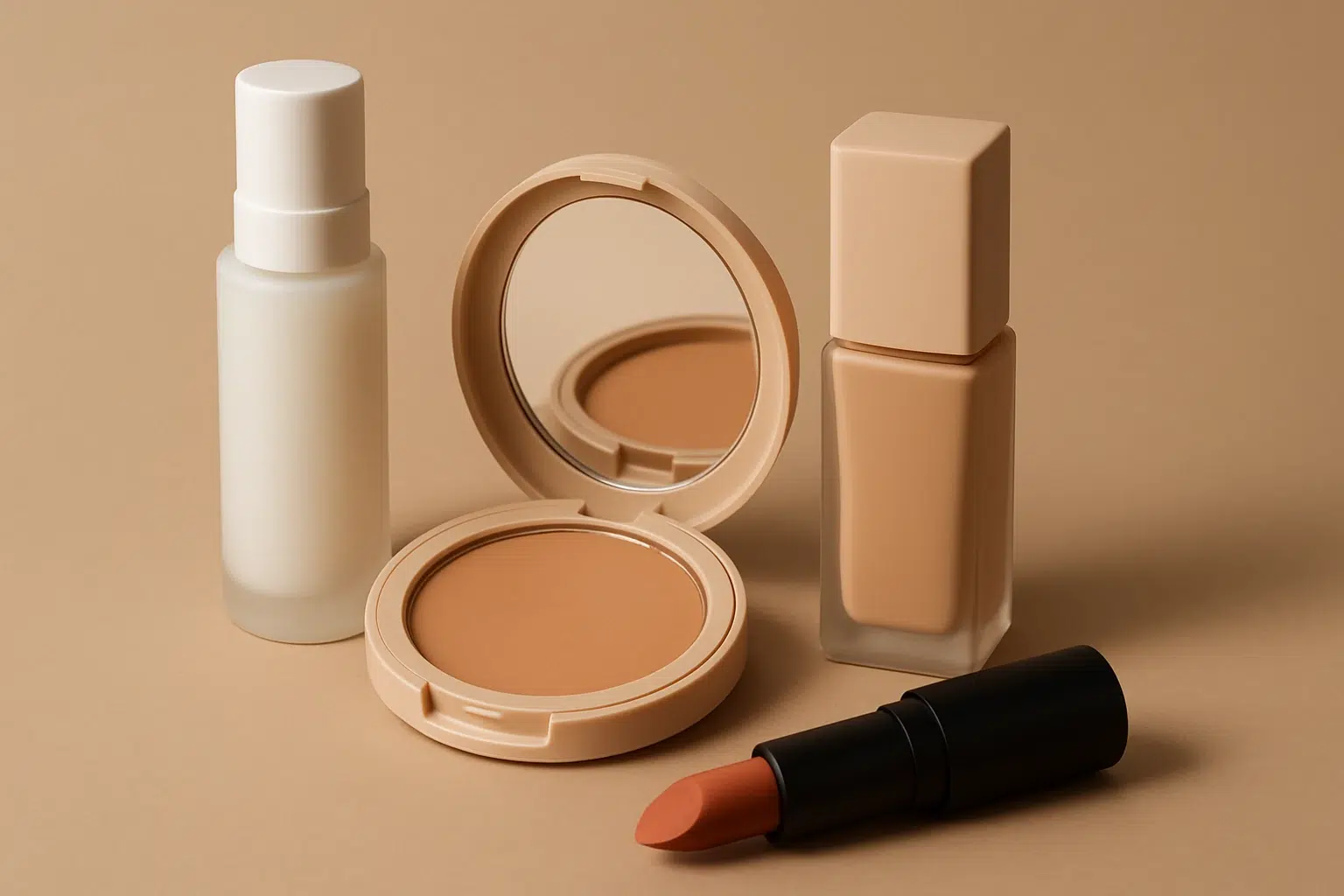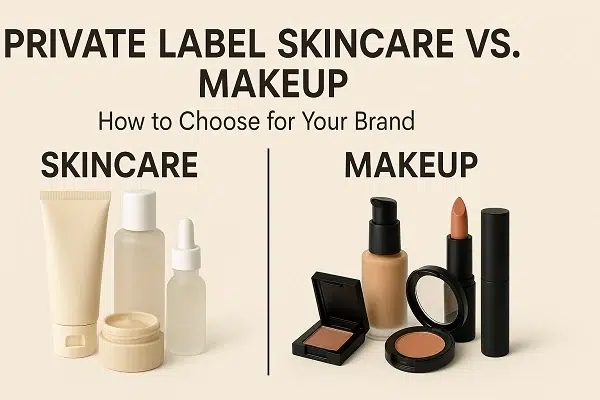We’ll delve into the specifics of what makes each ingredient so potentially irritating and look at more gentle alternatives that can help you create a lip gloss product suited to those with delicate complexions.
Table of Contents
Have you been looking for a private label lip gloss that won’t aggravate sensitive skin? It can be tricky to navigate through the ingredients list and find ones that are gentle and nourishing. To make your search easier, we’ve put together a list of six ingredients you should avoid if you’re creating a private label lip gloss for customers with sensitive skin.
We’ll also share some tips on how to test your product so that it meets your standards and satisfies those who have delicate skin types. Let’s get started!
Private Label Lip Gloss Ingredient to Avoid for Sensitive Skin
Parabens
Parabens are preservatives commonly used in beauty and skincare products, including lip gloss. Even though they help increase shelf life, parabens are potentially linked to hormone disruption and other health problems. Some experts also believe that using parabens over long periods can be damaging to the skin, so it’s best to stay away from them if you’re creating private label lip gloss.
To ensure your lip gloss products are safe for sensitive skin, always check the ingredients list and avoid any containing parabens. Your customers—and their health—will thank you for it!
Alcohols
If you’re looking to make lip gloss for sensitive skin, avoid any products with alcohol. These harsh ingredients can cause dryness, flaking, and irritation. Depending on the type of alcohol used, it can also dissolve the protective top layer of skin—aggravating it more and making it more vulnerable to bacteria.
Here are a few common alcohols found in lip glosses:
- Ethanol or ethyl alcohol
- Isopropyl alcohol
- Benzyl alcohol
- SD Alcohol
- Propylene glycol
As a private label cosmetics business owner, you need to be very careful when formulating your lip gloss so as not to include any of these possible irritants. Investing in quality ingredients is key when crafting a lip gloss made specially for those with sensitive skin.
Fragrance
The third private label lip gloss ingredient you should avoid for sensitive skin is fragrance. It’s all too easy to think that fragrance is just an added bonus in a product, but those scents can trigger allergic reactions, headaches and even asthma attacks in some people.
Fragrance is often found in lip glosses, because it makes the product more appealing. But when you create your own private label lip gloss, try to stick to products that don’t contain synthetic fragrances and preservatives.
Instead, look for plant-based essential oils and antioxidants that will provide the same scent benefits without potentially irritating your customer’s skin.
You can also look for natural alternatives like:
- Herbal extracts
- Green tea extract
- Floral extracts
- Jojoba oil
- Vitamin E oil
These products are all much gentler on the skin and may even offer additional skincare benefits too.
Petroleum-Based Ingredients
The next ingredient to watch out for is anything petroleum-based. Petroleum-based ingredients are derived from oil products, which can contain toxins that can irritate skin. If a lip gloss contains petroleum-based ingredients, you may want to opt for a different one if you know your customer has sensitive skin.
Some common petroleum-derived ingredients found in private label lip gloss include:
- Paraffin
- Petrolatum
- Mineral oil
- Isoparaffins
These ingredients not only clog the pores and can reduce your skin’s natural hydration levels, but they can also cause allergic reactions and lead to breakouts. So it’s best to avoid them if you’re creating lip glosses for those with sensitive skin.
Dyes and Colors
When it comes to private label lip gloss, you’ll want to stay away from dyes and colors. Dyes and colors often contain chemicals that could irritate sensitive skin, so it’s best to avoid them.
What kind of dyes and colors should I avoid?
Some of the common dyes and colors that you’ll want to avoid using in your private label lip gloss include:
- FD&C Red 40
- FD&C Blue 1
- Titanium dioxide
- Iron oxides
- Ultramarine blue
It’s also important to note that there are some natural alternatives that you can use, such as carmine (made from dried and ground cochineal beetles) or vegetable extracts like spinach and turmeric. However, many of these natural extracts can cause irritation as well, so it’s best to do a patch test before using them.
These are just a few of the dyes and colors that you’ll want to avoid when creating your private label lip glosses. By steering clear of these ingredients, you can ensure that your products will be safe for all types of skin types — including those with sensitive skin.
Phthalates
If you’re looking to keep your lip gloss formulas natural and safe for sensitive skin, it’s important to check for phthalates in the ingredients list. Phthalates, or plasticizers, are a type of chemical that can be found in dyes, fragrances, and nail polish and are used to make products softer and more pliable.
Unfortunately, phthalates have been linked to several health problems, such as reproductive issues, asthma, and even cancer. So it’s best to stay away from them if possible.
To avoid them, you should look at the list of ingredients on the label and check for chemicals like
- Dibutyl phthalate (DBP)
- Diethyl phthalate (DEP)
- Di(2-ethylhexyl) phthalate (DEHP)
- Benzyl butyl phthalate (BBP)
- Diisononyl phthalate (DINP)
You can also reduce your chances of using any products with these chemicals by only purchasing from suppliers such as Aurora Cosmetics who use natural or organic ingredients whenever possible. This way you can be sure that whatever lip gloss formula you come up with is safe for people with sensitive skin!
Using Natural Lip Gloss Ingredients for Your Private Label Products
Using natural ingredients in your own lip gloss is a great way to reduce potential skin reactions and keep your customers’ lips safe and healthy.
Natural lip gloss ingredients are also generally more affordable than their chemical-based counterparts, making them an ideal option for a budget-friendly product.
Finally, when you make your private label lip gloss you can be sure of exactly what’s in it and customize it to your customers needs, creating a product that caters specifically to their sensitive skin.
Common Natural Lip Gloss Ingredients
When it comes to making your own lip gloss, there are a number of different ingredients you can use depending on the look and feel you’re aiming for.
Here are some of the most common and effective natural ingredients for making lip gloss:
- Coconut Oil: Coconut oil is a popular choice as it has moisturizing properties and gives lips a soft sheen. It’s also known to have anti-inflammatory properties and is gentle enough for even the most sensitive of skins.
- Beeswax: Beeswax helps to hold the other ingredients together while providing a protective barrier against the elements. It also adds a bit of shine to the lips without feeling too heavy or sticky.
- Shea Butter: Shea butter is another popular natural ingredient for lip gloss as it helps to keep lips feeling soft and smooth all day long. It’s also known for its antioxidant properties which help fight free radicals and protect the delicate skin on your lips from environmental damage.
- Olive Oil: Olive oil adds a glossy finish to lips while providing them with nourishing properties. It’s also known for its antioxidant properties, which help to protect the skin from free radical damage.
- Vitamin E Oil: Vitamin E oil is beneficial for reducing inflammation on sensitive lips while providing nourishment and hydration at the same time. It can also help to prevent wrinkles around the mouth area.
- Candelilla Wax: Candelilla wax is derived from a plant that grows mainly in Central Mexico. It’s naturally high in fatty acids which help to lock in moisture while forming a protective barrier over your lips. Candelilla wax also helps create lasting color on your lips without feeling sticky or heavy.
- Cocoa Butter: Cocoa butter is a great choice for those with dry or chapped lips as it helps lock in moisture while keeping lips soft and plump. It also has antioxidant properties that help protect against environmental damage.
Using Natural Colorants in Homemade Lip Gloss
To add color to your homemade lip gloss, you’ll need to use natural colorants such as mica powder or mineral pigments.
Mica powder is available in many different colors and is a good option if you want to add subtle color to your lips without using synthetic dyes or preservatives. Mineral pigments are a great choice as well as they can be mixed with other lip gloss ingredients to create beautiful shades that won’t irritate sensitive skin. You can also add food-grade extracts such as vanilla or peppermint extract for a pop of color and flavor!
Conclusion
Private label lip glosses are increasingly popular, as they provide customers with unique products tailored to their needs. But if you’re making products for sensitive skin, it’s important to be mindful of the ingredients you use.
There are several lip gloss ingredients to avoid to create safe cosmetics for sensitive skin. These include synthetic fragrances and dyes, which can cause irritation and inflammation. Many of the ingredients used in conventional lip gloss formulas, such as mineral oil and polybutenes, can also be bad for sensitive skin.
By understanding the ingredients to avoid for sensitive skin, you can create safe and effective private label lip gloss products that won’t cause irritations or adverse reactions. Doing so will make your products more attractive to customers who are looking for gentle and effective cosmetics.







